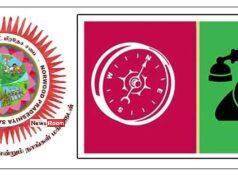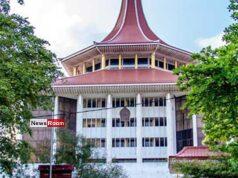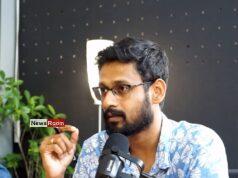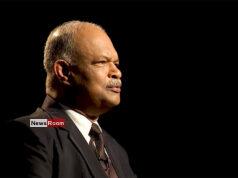Thursday 24th November, 2022
Hardly a day passes without teachers’ trade unions kicking up a stink. Having ventured far afield on the political front and suffered several defeats at the hands of the Rajapaksa-Wickremesinghe government, they are badly in need of a victory to flaunt. They have chosen to embark on a mission that will benefit neither teachers nor students; they are demanding that the government recognise female schoolteachers’ right to be in clothes other than the saree during duty hours. They have cited factors such as huge increases in saree prices and the convenience of other dresses in a bid to justify their demand. Is it that only the saree prices have increased? Shoe prices have also gone into the stratosphere, and shouldn’t students be allowed to come to school in flip-flops?
Some female teachers reported for work, wearing smart-casual clothes, the other day, and posted their photographs on social media, causing quite a stir. They said they were following a circular issued by the Public Administration and Home Affairs Ministry on the state employees’ dress code. Curiously, they do not go out of their way to follow circulars the government has issued on other state employees’ working hours, etc. Education Minister Susil Premajayantha has taken steps to clear confusion created by the circular at issue, we are told. He is of the view that the most appropriate attire for female teachers is the saree. It is said that there’s no accounting for taste.
Minister Premajayantha ought to address the burning issues, which are legion, in the education sector, without being distracted by teachers’ attire. Teachers must also stop making issues out of non-issues and help solve the real problems affecting schools.
The Minister can help mitigate the economic woes of people if he gets his act together. Private tuition takes a substantial chunk of the income of every family with school-going children. Students, especially those preparing for competitive examinations such as the GCE A/L, are heavily dependent on shadow education owing to lapses on the part of their teachers and schools. There are, of course, some public schools which impart a decent education to students; they deserve praise, but sadly they are the exception that proves the rule. If the Education Ministry can ensure that teachers carry out their duties and functions properly in the state-run schools, the need for private tuition can be obviated much to the relief of parents who are paying through the nose for extra lessons.
Minister Premajayantha is given to show off his knowledge in Parliament. A few days ago, he wrong-footed a cantankerous Opposition MP, who raised questions about COP 27; the former only asked the latter what COP 27 was. There was no response! How does our learned Education Minister propose to improve the standards of school education and reduce students’ dependence on private tuition, which costs hapless parents an arm and a leg? A large number of underprivileged schools are facing the threat of closure due to what sociologists call the exit phenomenon; some schools have already closed down for various reasons. Schools must be easily accessible, especially in the rural and estate sectors where dropout rates are reportedly higher than elsewhere. How does the government propose to tackle the problem of school closures? What action has it taken to bring down the cost of schooling, which is extremely high due to soaring prices of stationery, etc? Malnutrition is also on the rise among students, and the government does not seem to be making a serious effort to tackle it.
Some Buddhist monks lost no time in sticking their oars in when the news about the teachers’ demand in question got around. They held media briefings, where they demanded that female teachers must not wear anything other than the saree to work, and accused the teachers’ unions of advancing what they called an NGO agenda. Their right to express their views on issues concerning teachers and education cannot be questioned, but shouldn’t they first ensure that young monks wear the saffron robe properly at least in public. The conduct of some Bhikkus who take part in protests is appalling. They are a disgrace to the Maha Sangha.
Let the government and the teachers’ unions be asked to stop wasting their time and energy on trivialities and concentrate on how to straighten up the education sector. The government ought to curtail waste, rationalise its expenditure and allocate more funds for education, and the warring teachers’ trade unions must tell their members to pull their socks up and live up to people’s expectations.







